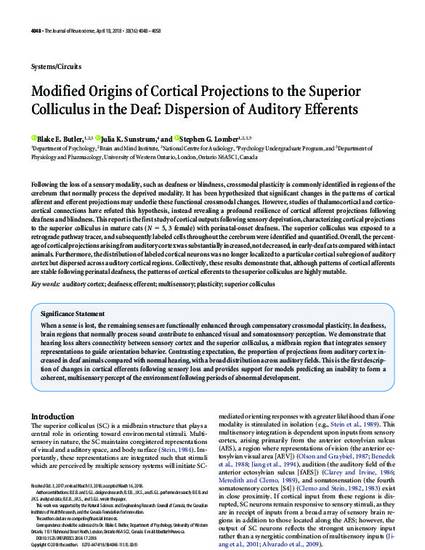
Article
Modified Origins of Cortical Projections to the Superior Colliculus in the Deaf: Dispersion of Auditory Efferents.
The Journal of neuroscience : the official journal of the Society for Neuroscience
Document Type
Article
Publication Date
4-18-2018
URL with Digital Object Identifier
10.1523/JNEUROSCI.2858-17.2018
Disciplines
Abstract
Following the loss of a sensory modality, such as deafness or blindness, crossmodal plasticity is commonly identified in regions of the cerebrum that normally process the deprived modality. It has been hypothesized that significant changes in the patterns of cortical afferent and efferent projections may underlie these functional crossmodal changes. However, studies of thalamocortical and corticocortical connections have refuted this hypothesis, instead revealing a profound resilience of cortical afferent projections following deafness and blindness. This report is the first study of cortical outputs following sensory deprivation, characterizing cortical projections to the superior colliculus in mature cats (
Citation Information
Blake E Butler, Julia K Sunstrum and Stephen G Lomber. "Modified Origins of Cortical Projections to the Superior Colliculus in the Deaf: Dispersion of Auditory Efferents." The Journal of neuroscience : the official journal of the Society for Neuroscience Vol. 38 Iss. 16 (2018) p. 4048 - 4058 Available at: http://works.bepress.com/blake-butler/4/
